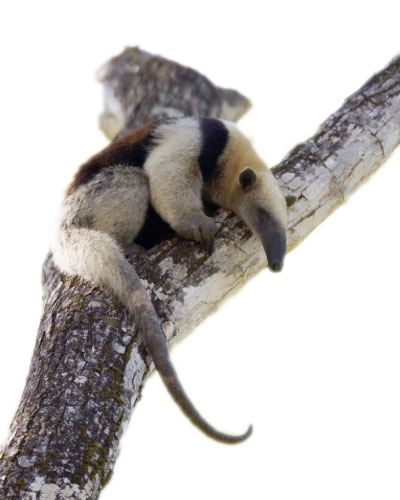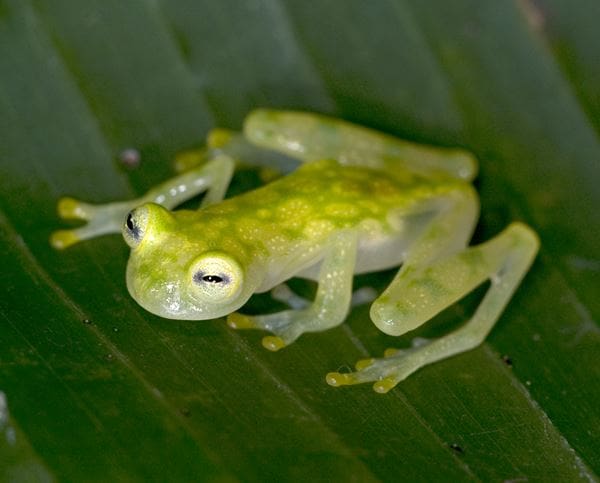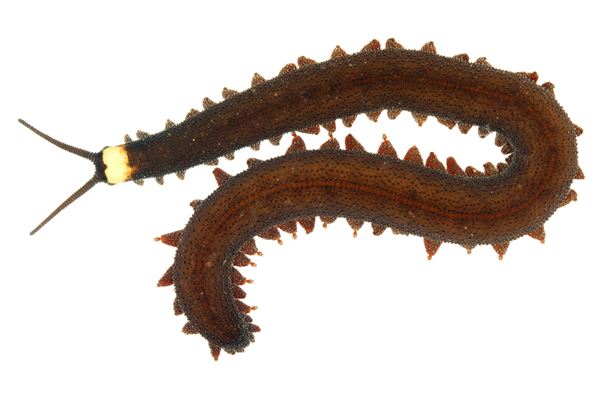
Reticulated Glass Frog, Velvet Worm ans Northern Tamandua
This Creature Feature highlights the distinctive characteristics of three Costa Rican animals.
Reticulated Glass Frog
The reticulated glass frog is small and distinctively colored with large, pale yellow spots on a green background, sprinkled with small black spots that mimic its own egg clutch. This fun little fellow can be observed on the underside of leaves along stream banks in the rain forest where the female deposits her eggs. The male guards the eggs 24/7 and uses his camouflage to ambush and eat the flies that come to lay their eggs in the frog egg mass. He will guard up to three clutches of eggs in various stages of development that his mate has laid over several days, and aggressively fends off other male frogs from his territory.
Peripatus (Velvet Worm)
Costa Rica’s peripatus, or velvet worm, is an elongated, soft-bodied, many-legged panathropod often compared to caterpillars and slugs. The worms squirt a sticky slime used for defense and catching insects to eat. However they are not a threat to humans.
To keep from drying out, the worms live in moist environments such as leafy ground cover on the rainforest floor. The mating behaviors of these secretive creatures has seldom been observed. They are unusual in that they give birth to living young.
Northern Tamandua
The northern tamandua is a tree dwelling anteater found throughout Costa Rica. It collects ants and termites with its tongue and relies on its gizzard to grind its food as it has no teeth. The tamandua uses its strong front claws for climbing, ripping into trees to get at its food and for defense. The female normally gives birth to a single baby, which she carries on her back and suckles until it can fend for itself. This anteater is on the IUCN red list of threatened species.


